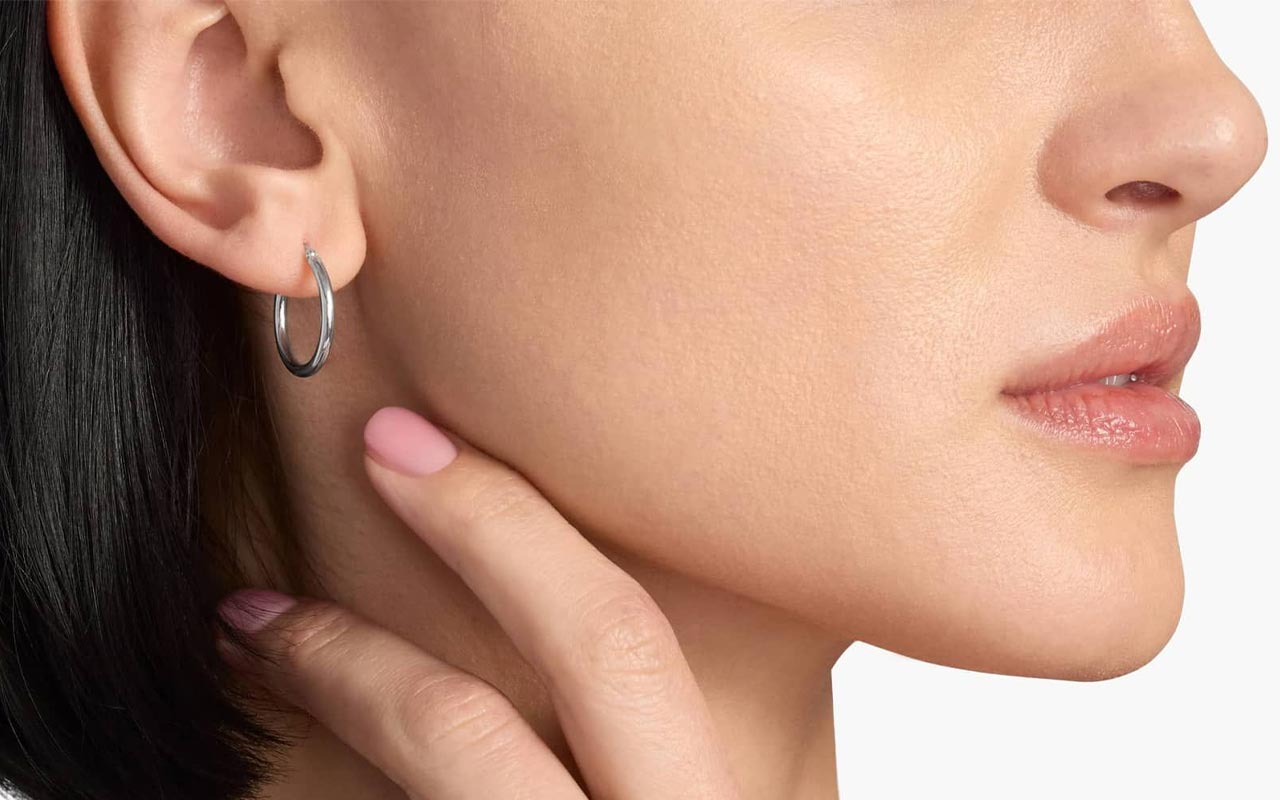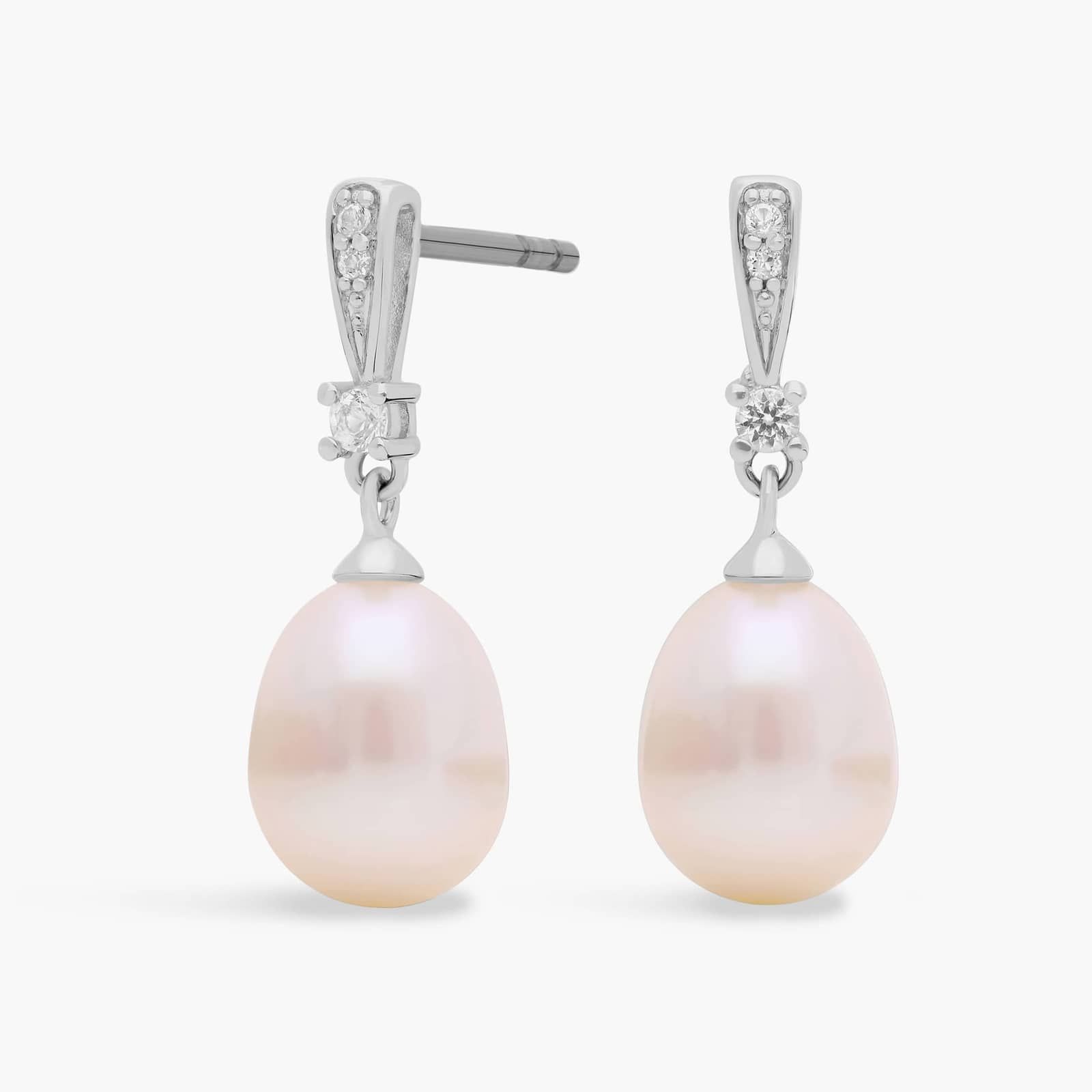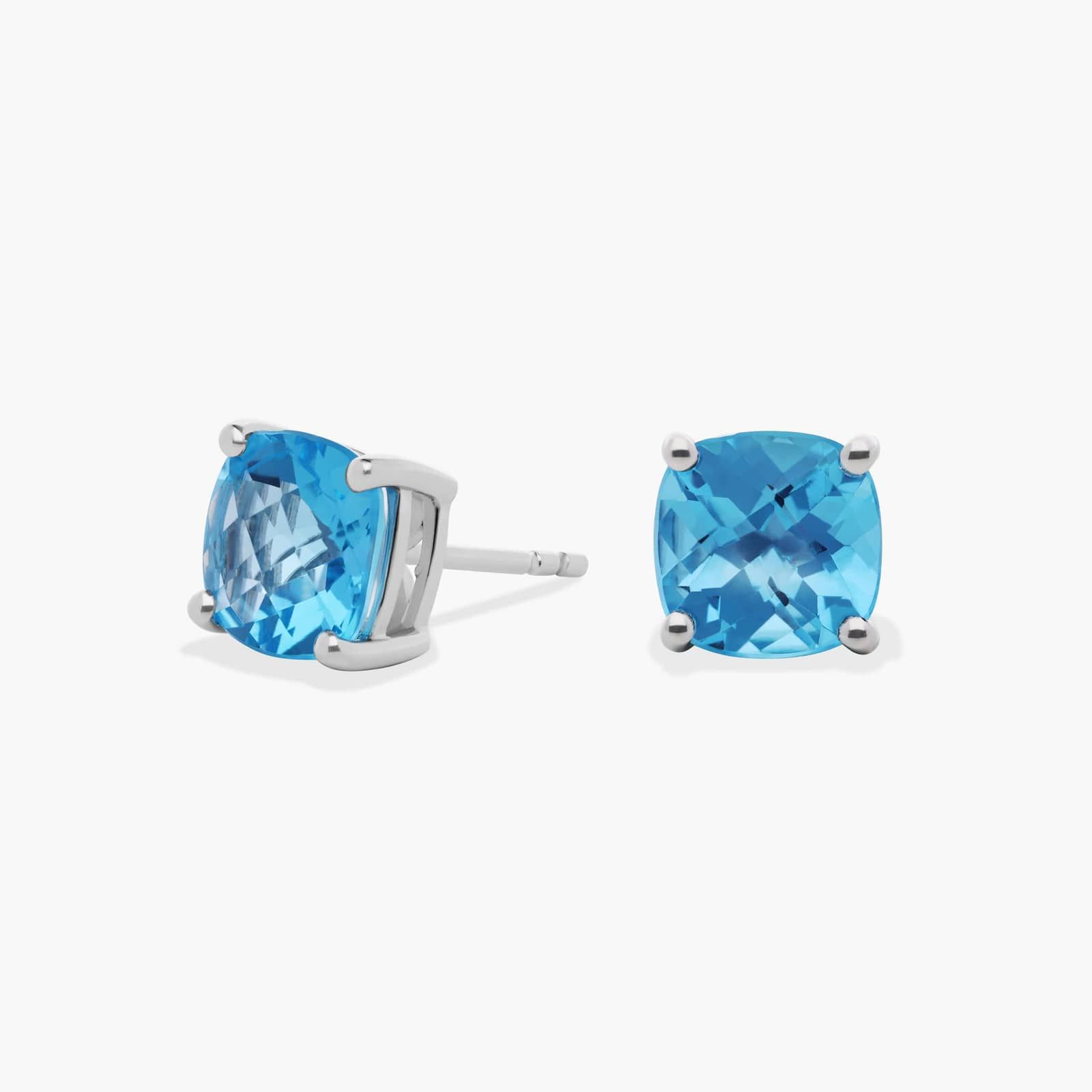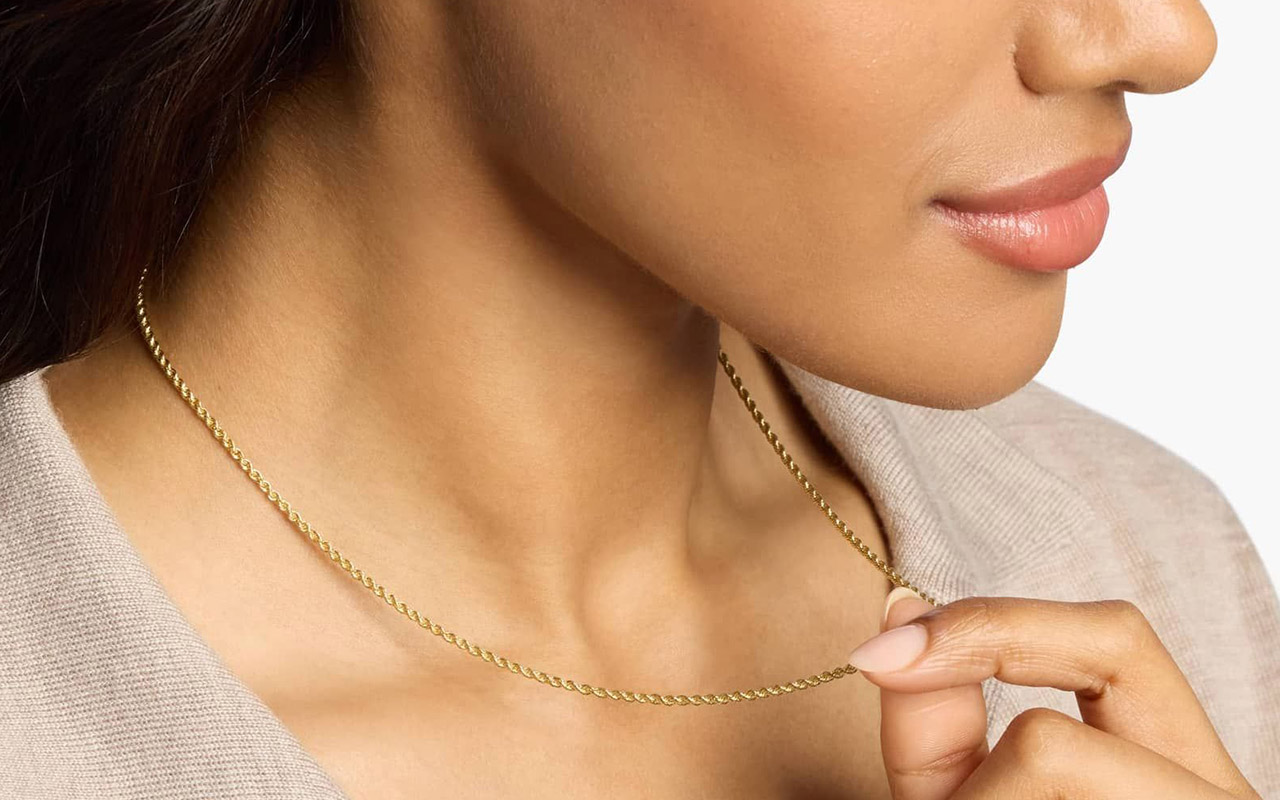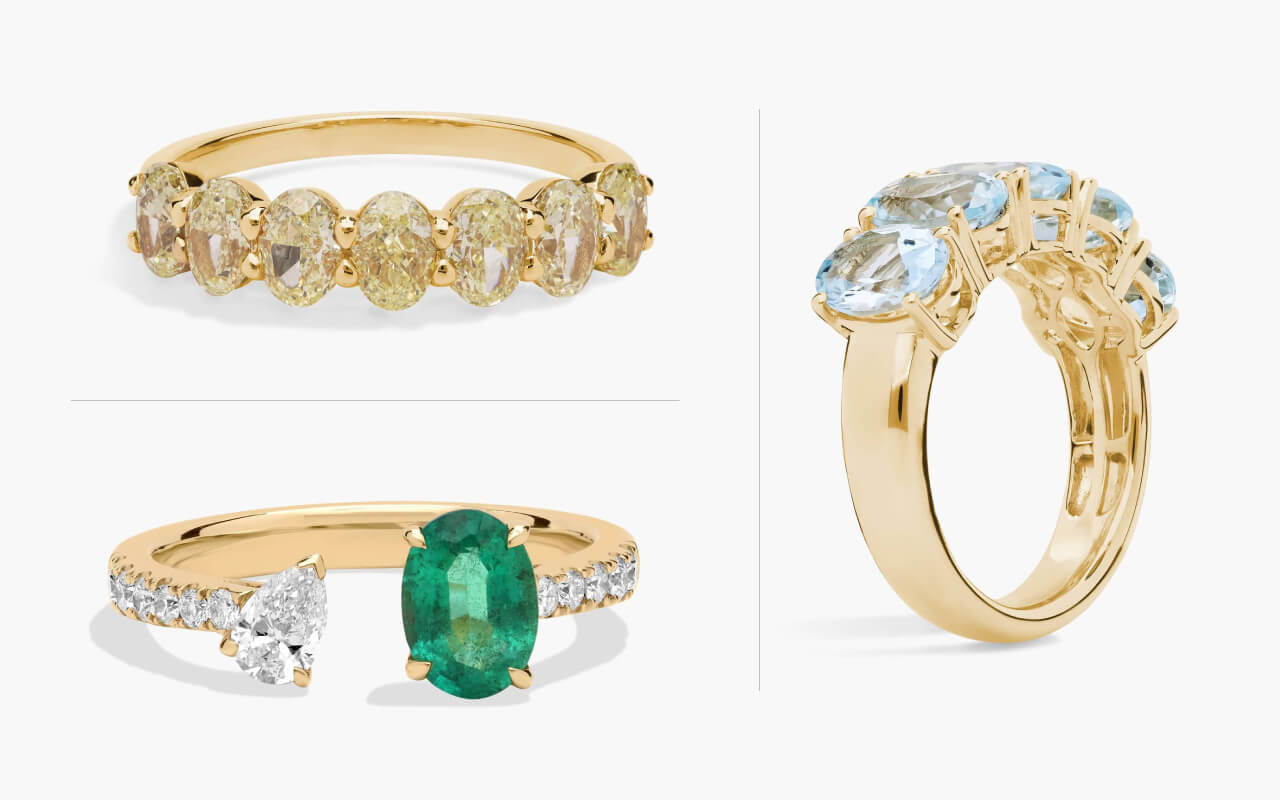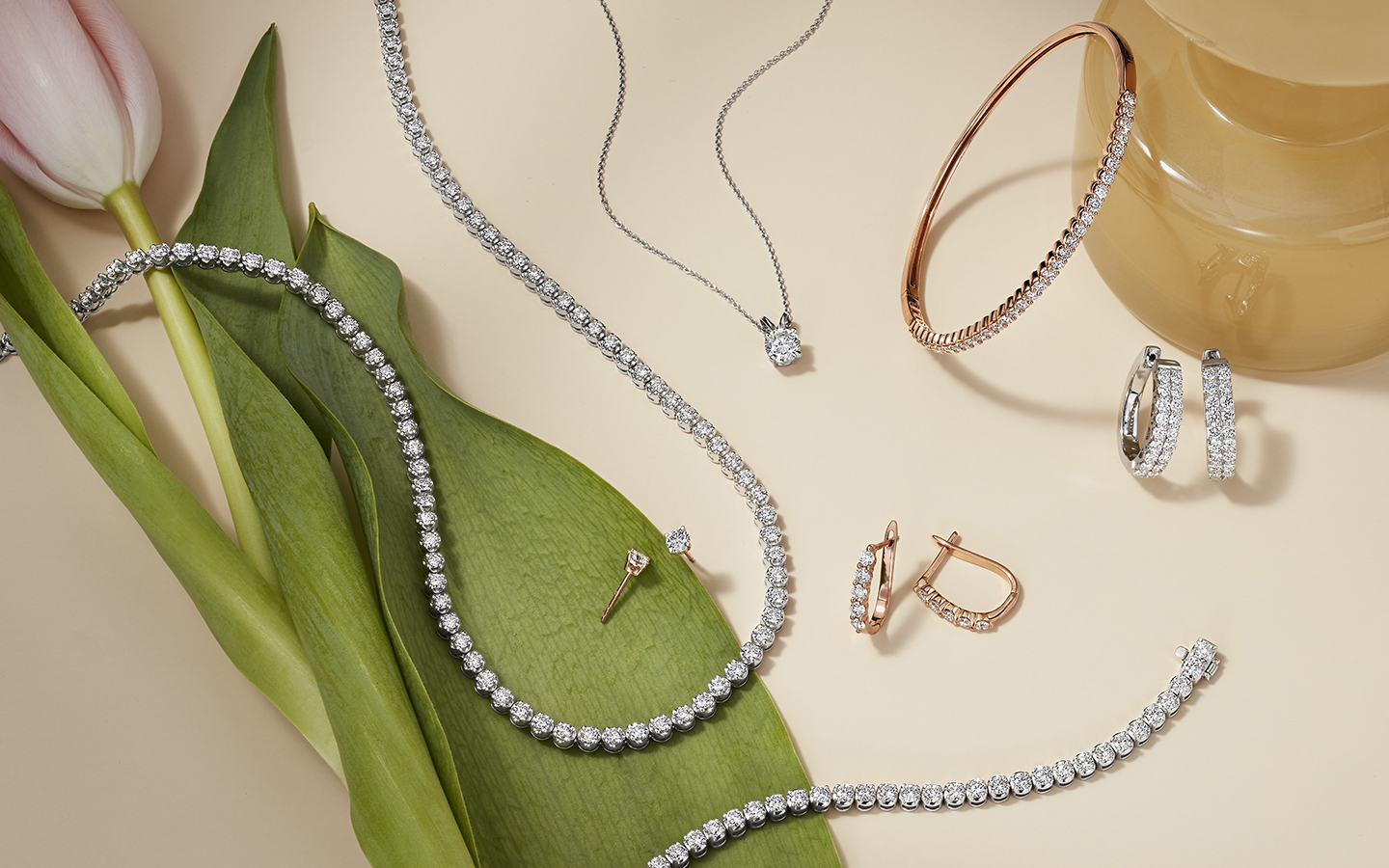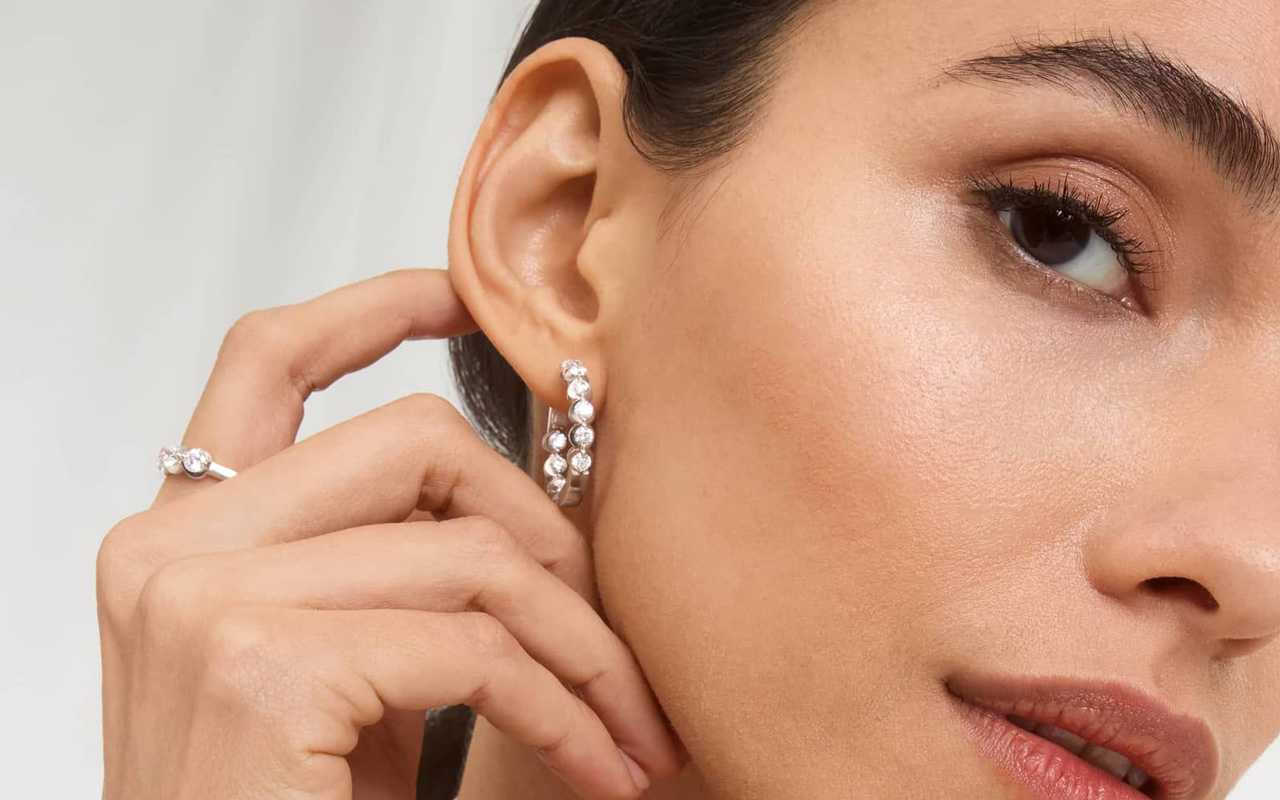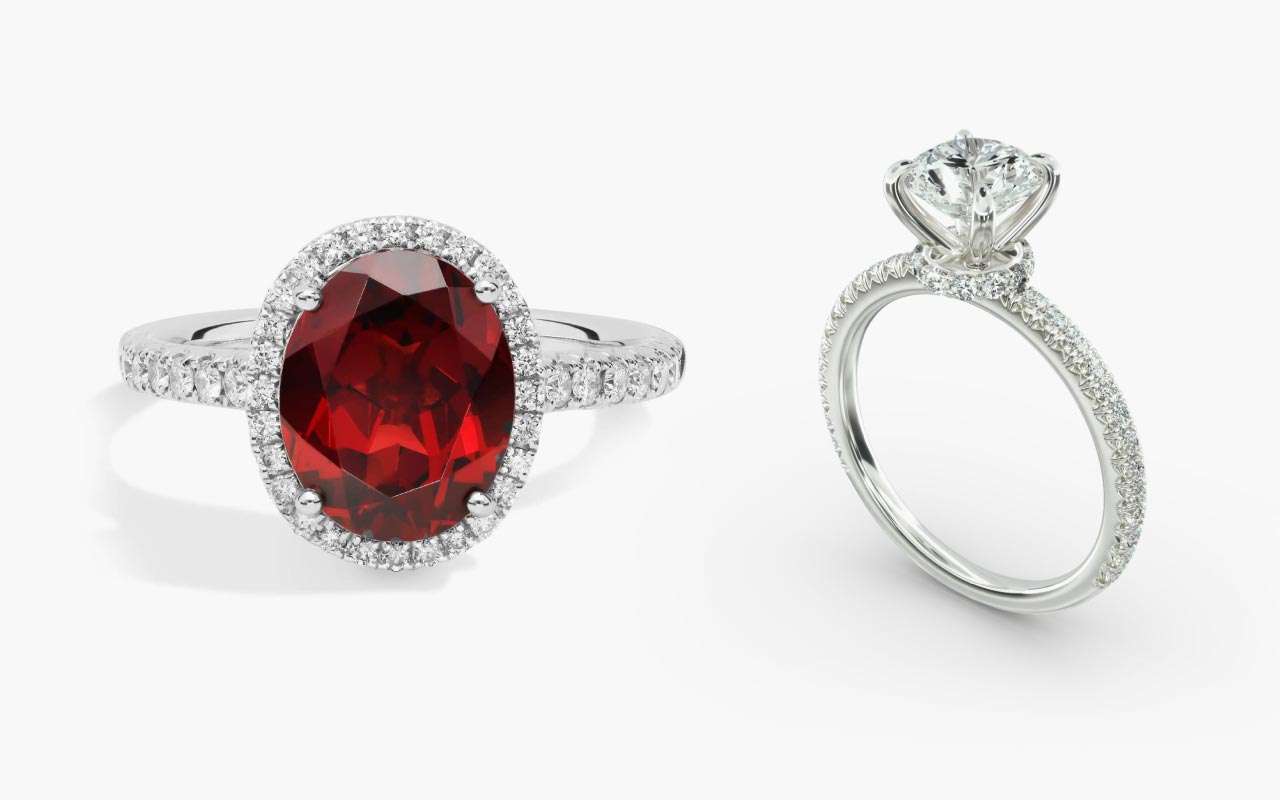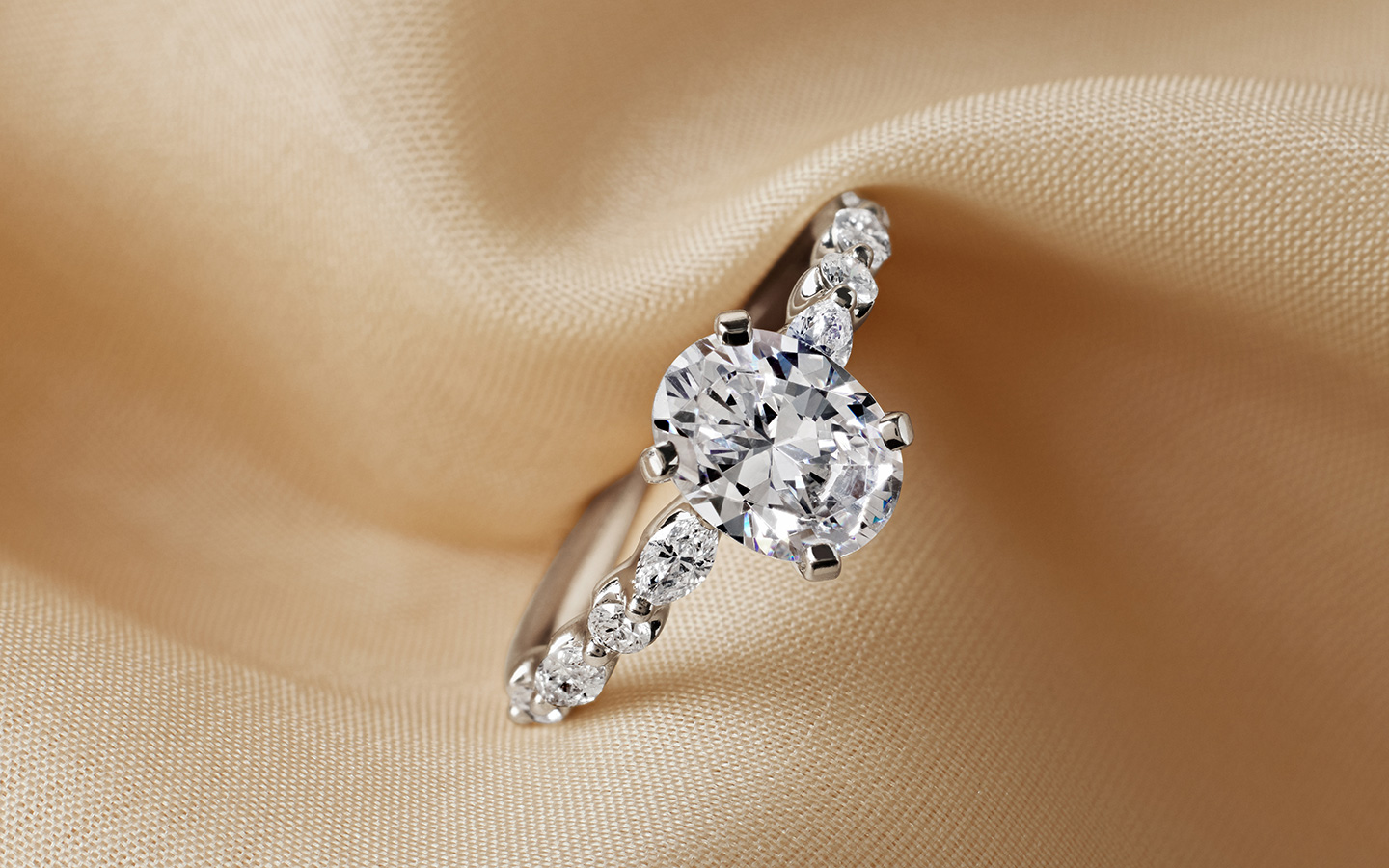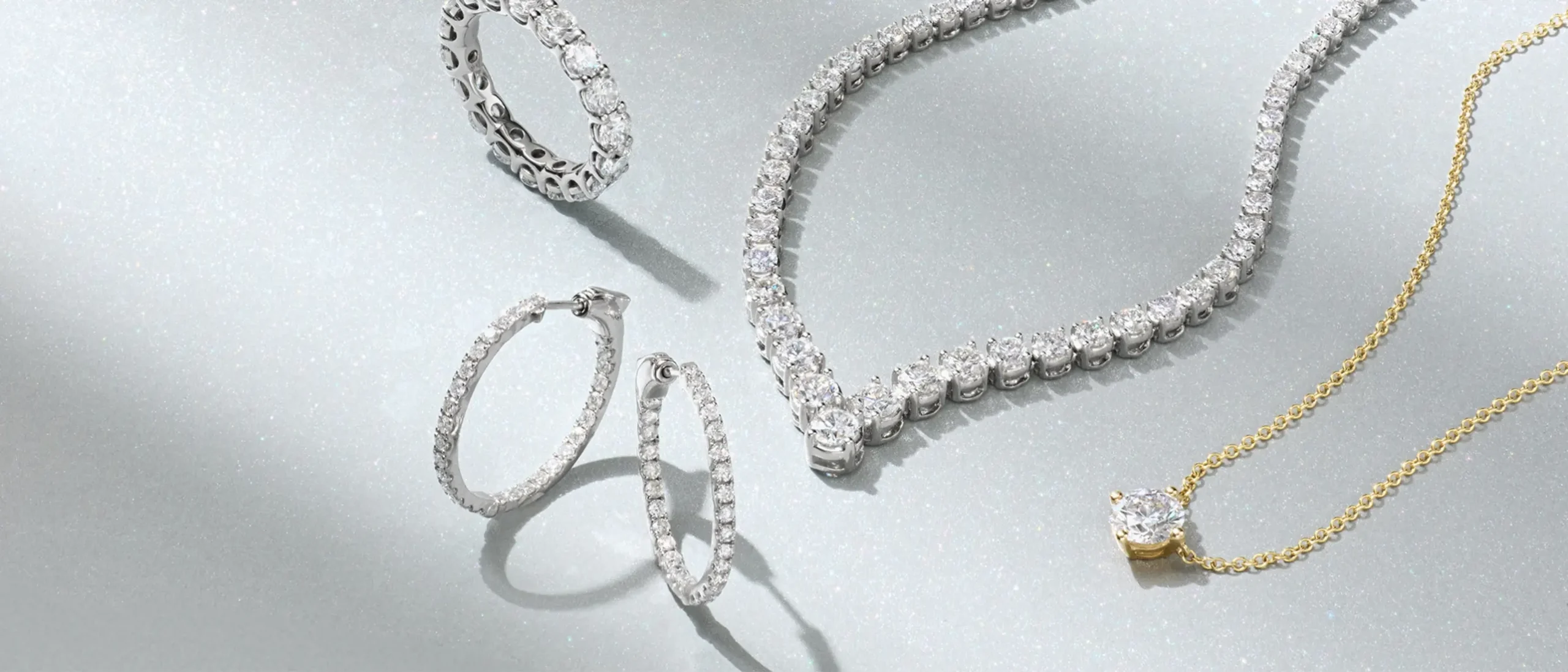- One of the most common causes of irritation from earrings is a nickel allergy.
- If you have sensitive ears, choose hypoallergenic metals like titanium, platinum, 14k or 18k gold, or surgical steel.
- Go with lightweight, minimal earring styles that won’t pull on your earlobes, like flat back studs, hoops, huggies, and cartilage earrings.
Say you purchase a new pair of earrings. They’re the perfect finishing touch to an outfit you’ve been putting together for a nice dinner. But when you take out the earrings at the end of the night, your ears have grown red, puffy and irritated. You might not be able to wear those earrings again, but hope isn’t lost for your style game. You just need to switch to special earrings for sensitive ears.
Sensitive ears can swell, itch and get sore from low-quality earring metals. Nickel is the most common culprit, since many people are allergic to it. Finding nickel-free and hypoallergenic jewelry is the first step, but which metals are best? And what else can you do to soothe sensitive ears? We’ll cover the safest materials, styles and care tips below to heal your relationship with earrings and say goodbye to irritated ears.
Best Materials for Sensitive Ears
First, let’s go over the best earring metals for sensitive ears. These high-quality, hypoallergenic materials are gentle on piercings and cause less irritation than other metals.
Platinum
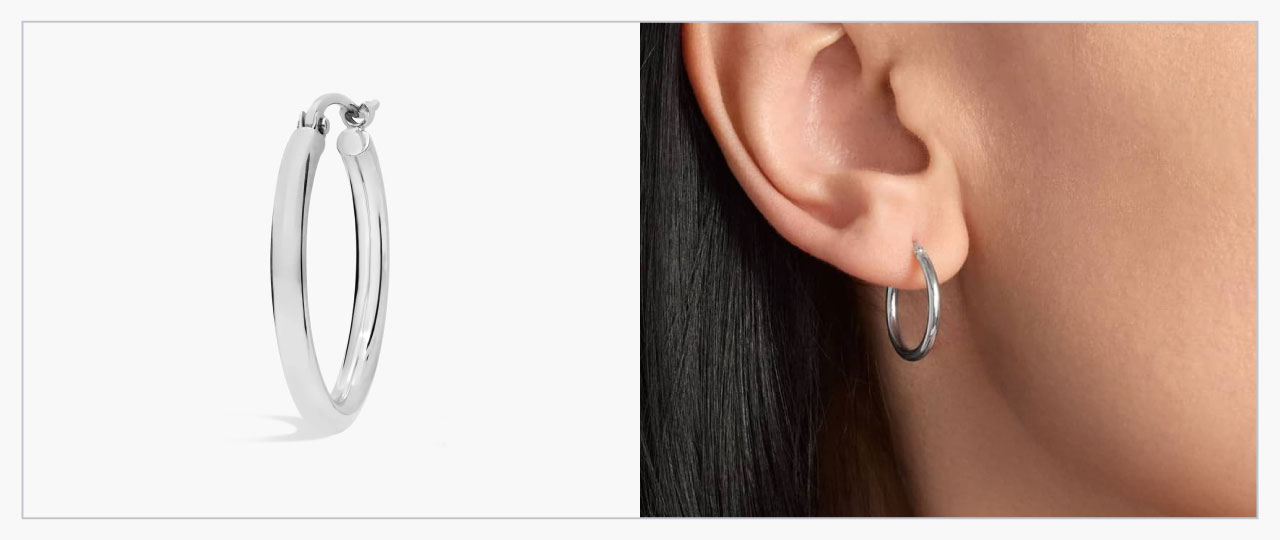
Platinum earrings are usually a safe bet for sensitive ears because platinum is chemically inert. That means it doesn’t react with air, moisture or skin and is highly resistant to tarnishing and corrosion that could irritate the skin. Platinum jewelry is usually 95% platinum, making it a “pure metal” that contains no nickel or mystery metal alloys that could trigger an allergic reaction.
Because it’s highly durable, dense, rare, and difficult for jewelers to work with, platinum is considered a high-end luxury metal that’s more expensive than gold. If you aren’t worried about spending a bit more, platinum earrings are exceptionally high-quality hypoallergenic pieces.
Gold
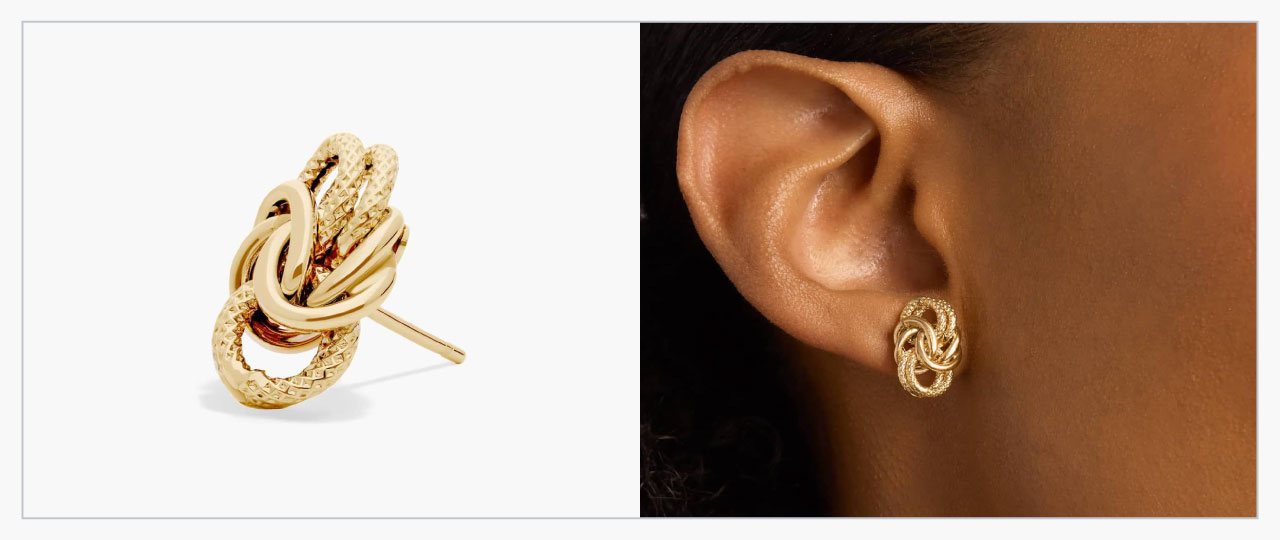
High-purity gold, like 24k or 18k gold, is nickel-free, hypoallergenic and oxidation-resistant, which means it’s usually safe for sensitive skin. Lower-karat gold, like 10k gold, may contain metals like nickel, zinc or copper to strengthen it, and these metals may irritate the skin.
Steer clear of gold-plated earrings. These are created with a thin gold coating that, once worn away, could expose base metals that may trigger ear sensitivities. Be cautious of white gold as well. Even at higher karats, white gold can include nickel for color. If you’re set on white gold, choose white gold earrings that are specifically labeled nickel-free.
Titanium
Titanium is a tarnish-resistant metal that’s generally safe for sensitive ears. It’s so biocompatible that surgeons even use medical-grade titanium in orthopedic implants. Despite being durable and rust-resistant, titanium earrings are also very lightweight, so they won’t pull at or weigh down your earlobes.
Offered at a lower price than platinum or gold, titanium is a great choice for daily wear. Purchase a set of titanium earrings for your sensitive ears if you want a metal that’s affordable and will last. Just make sure you choose medical-grade or pure titanium earrings.
Surgical Steel
Surgical steel earrings are safe options for some, but not all, sensitive ears. “Surgical steel” has no formal definition, but manufacturers use the term to denote highly corrosion-resistant steel often used for biomedical purposes like surgical tools. 316L surgical steel is a steel alloy often used in earrings. It’s affordable, stylish and resists tarnishing, but it does contain some nickel.
Though many people with mildly sensitive ears find that surgical steel earrings don’t irritate their skin, those with more severe nickel allergies may want to avoid them to be safe.
Demi-Fine Jewelry Options
Demi-fine jewelry is made to mimic the aesthetic of real gold and gemstones. A demi-fine piece usually features a plating of a precious metal like gold, silver, platinum, or rhodium over an inexpensive base metal like sterling silver.
If the plating is thick and protective, as in vermeil with gold over sterling silver, the demi-fine jewelry may be perfectly fine for sensitive ears. However, a thinner plating can quickly wear away, exposing the base metal underneath. If this base metal contains nickel, it could irritate your ears.
Demi-fine jewelry can be a good budget-friendly choice if you have mildly sensitive ears. For highly sensitive ears, double-check that a pair of demi-fine earrings is made of 100% hypoallergenic metals before you purchase.
Styles That Work Best for Sensitive Ears
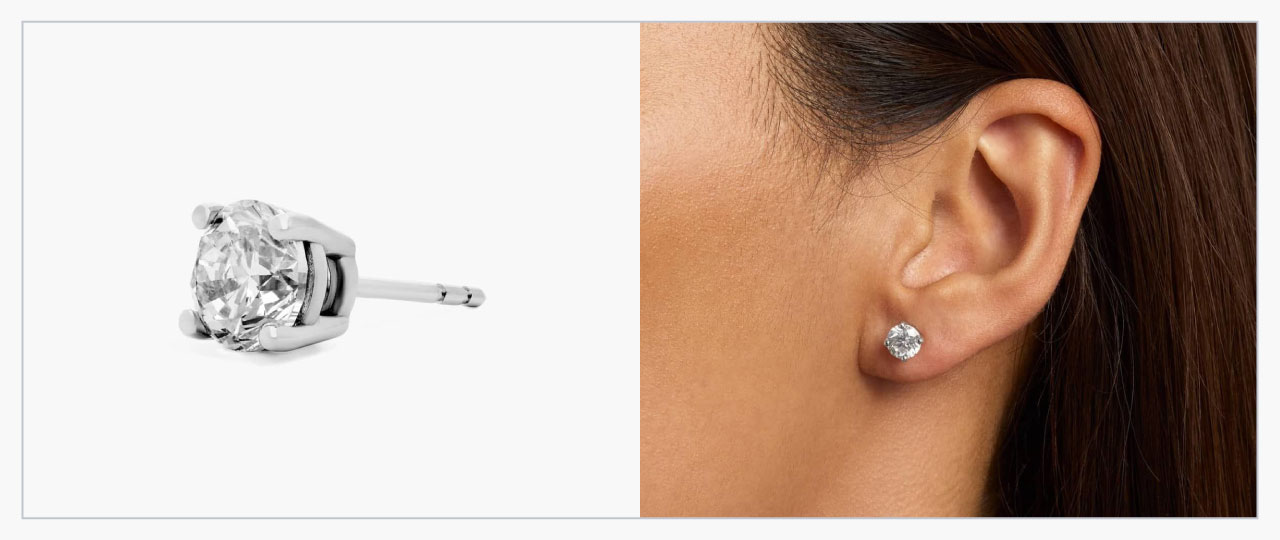
Flat back stud earrings are classic, lightweight, and gentle on the ears. Their flat backs are designed for minimal skin contact and typically cause little to no irritation. Some people find them more comfortable than butterfly back studs, which have sharper edges. Of course, make sure to choose one of the high-quality, hypoallergenic metals listed above to make sure your studs are as comfortable as possible.
Flat back earrings can include gold, gemstone and pearl stud earrings. With their simple, minimalist designs, they’re perfect for everyday wear and fancy events alike.
Everyday Hoops and Huggies
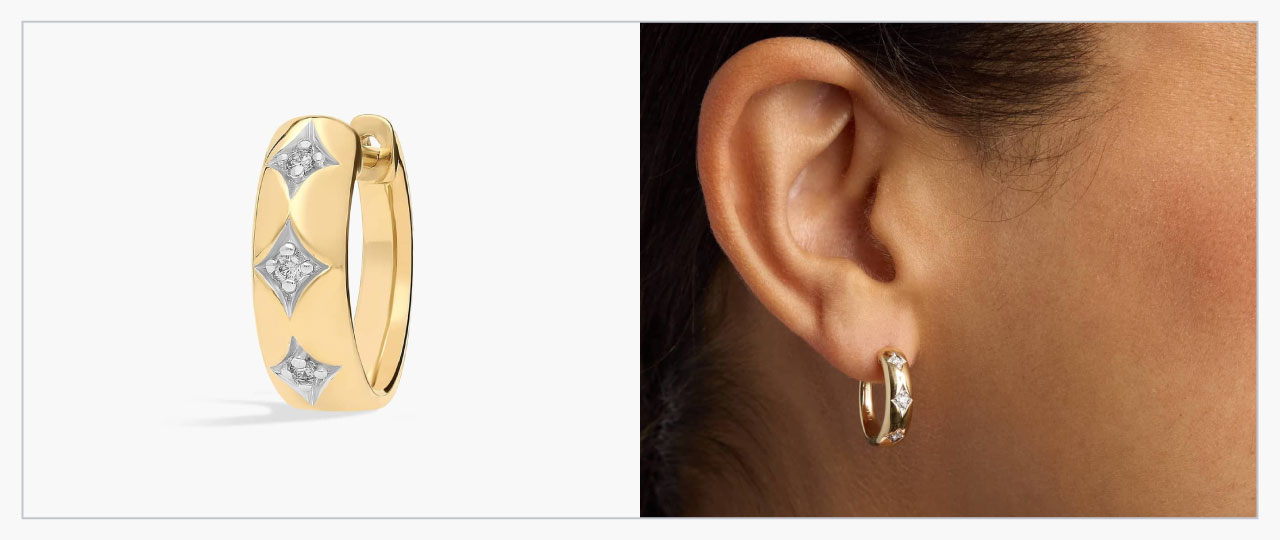
Small hoop earrings can also be a great option if you have sensitive ears because they’re less likely to weigh down your earlobes than pendant earrings. They can also add style to any outfit. Just make sure to choose hoops with smooth edges so they don’t catch on your clothes and cause ear irritation.
Similar to hoops, huggies, or hinged hoop earrings, fit securely around the earlobe without being too tight or heavy. Look for ones with smooth closures to lessen the chance of skin irritation.
Cartilage Earrings for Sensitive Ears
Small, high-quality cartilage earrings that go in the firmer parts of the ear can be good for sensitive ears because they aren’t likely to weigh down your piercings or catch on clothing during the day.
If you have conch, helix, tragus, daith, snug, or rook piercings, you’ll want to look for cartilage earrings made of hypoallergenic materials with smooth edges and minimal designs. The smaller and more lightweight the cartilage earrings, the less likely they are to irritate.
What to Look for When Buying Earrings for Sensitive Ears
When you set out to find the best hypoallergenic earrings, you may find that sellers can be misleading and don’t always disclose when earrings contain nickel. Here’s what to keep in mind while shopping:
- Be cautious with cheap plated jewelry and avoid unknown base metals.
- If you buy silver earrings, ensure they’re actually sterling silver and not nickel in disguise.
- Look specifically for wording like “nickel-free,” “hypoallergenic” and “medical-grade.”
- Purchase from reputable companies that fully disclose the makeup of their jewelry.
Knowing what earrings are good for sensitive ears will help lessen your chances of painful, puffy ears. At Blue Nile, we’re transparent about using high-purity, hypoallergenic metals.
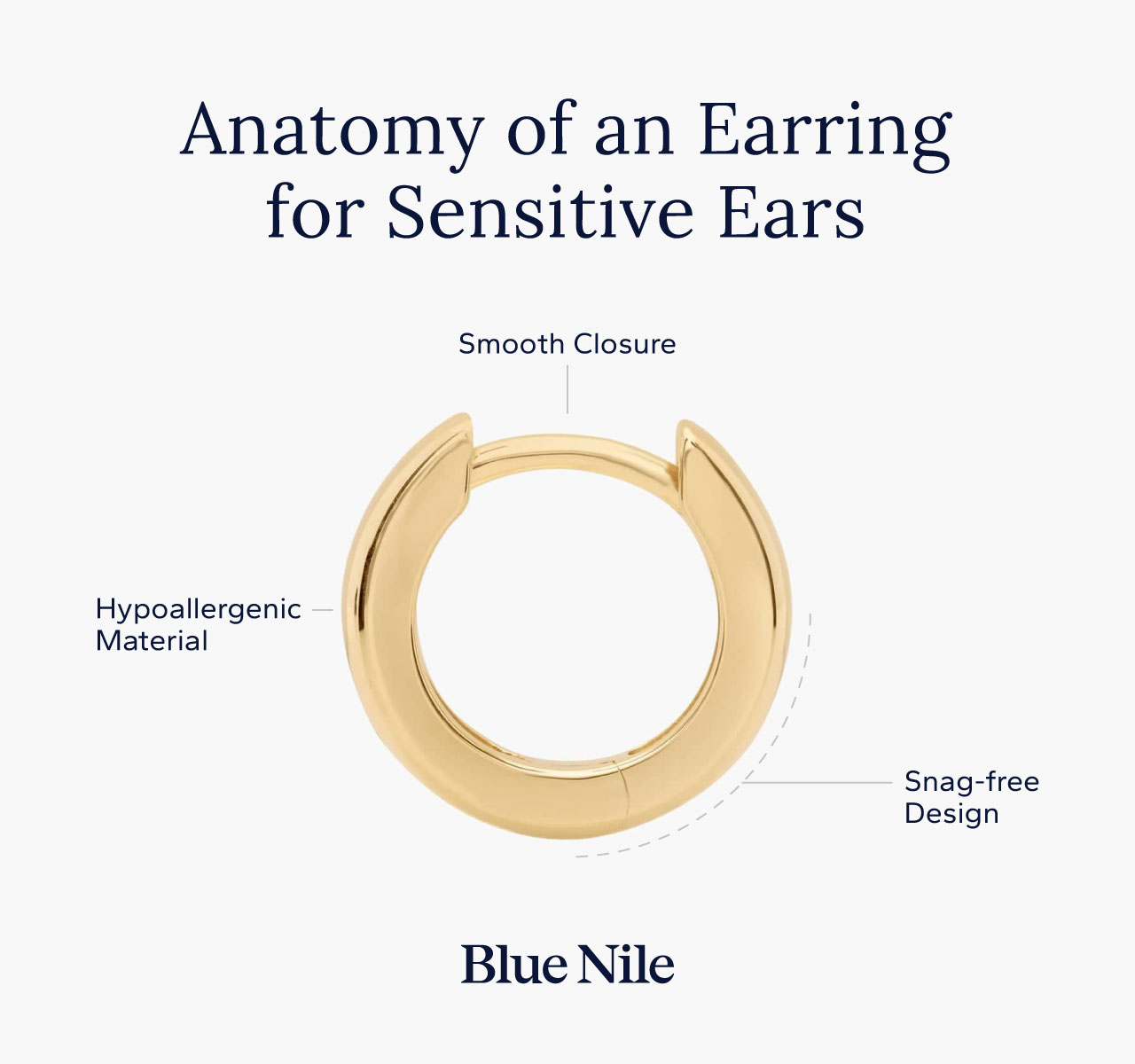
What Causes an Allergic Reaction to Jewelry?
Some jewelry metals, such as alloys, cobalt and chrome, as well as low-quality materials and plating, are known to irritate sensitive ears. Nickel is the most common metal people are allergic to, and it’s often used in lower-quality and plated jewelry. If you have a nickel allergy, coming into contact with it can cause a red, itchy rash. This reaction can occur days after touching the metal and can last for weeks.
If you have a bad reaction to your earrings, there may be nickel in them. Make sure to buy completely nickel-free earrings for sensitive ears by choosing to invest in higher-quality, hypoallergenic metals.
Care Tips for Earrings and Sensitive Ears
Follow these steps at home to make wearing earrings as painless as possible:
- Clean your earrings regularly: Wipe down your earrings with soap and water after every use. Clean jewelry regularly to reduce the buildup of dirt and oils that may irritate your ears. Have them professionally deep-cleaned once a year for long-lasting shine. You can also invest in an ultrasonic jewelry cleaner for a deeper clean at home.
- Properly store your earrings: Storing earrings in airtight containers can help prevent tarnishing and dust buildup.
- Clean and moisturize your earlobes regularly: Use water and gentle products to clean your ears. Massage your earlobes with a moisturizer to keep them free of oils and dirt. Follow with an unscented moisturizer to avoid irritation.
- Give your ears a break: Taking a break from wearing earrings every other day or for a few days at a time can help minimize skin irritation.
Find the Perfect Pair of Earrings That Love Your Ears Back
The best earrings for sensitive ears are made of high-quality gold, platinum or silver and do not contain metals like nickel. You can also avoid irritating your ears by choosing lightweight styles that minimize skin contact and regularly cleaning your earrings and ears.
Now that you know what to look for, search our high-quality collection to find options you love. Our best-selling earrings include modern styles and classic designs with artisan details. Whether you’re looking for diamonds, gemstones, gold or platinum, look no further than Blue Nile for high-quality earrings.
Frequently Asked Questions
Your earrings might start hurting your ears all of a sudden because your earrings are dirty, you haven’t worn earrings in a while or you have an allergy to nickel and are trying to wear nickel earrings. Follow the tips above to keep your ears free from irritation.
Platinum and titanium are completely nickel-free and thus allergy-friendly. Many other metals include metal alloys that you cannot guarantee are 100% free of nickel.
The only real way to test if earrings will irritate your ears is to wear them. Wear the earrings for several hours and pay attention to how they interact with your skin. Watch out for a rash, cracked skin, redness, swelling, blisters, burning, or itching.
Before you try the earrings, you may also get a patch test done with your healthcare provider to find out if you’re allergic to certain metals.
Earrings are usually called hypoallergenic if they contain no nickel. Titanium, 14k or 18k gold and platinum are all hypoallergenic earring metals that usually don’t contain nickel. Make sure to purchase jewelry clearly marked “nickel-free” from credible companies that fully disclose the metal content in their jewelry.

